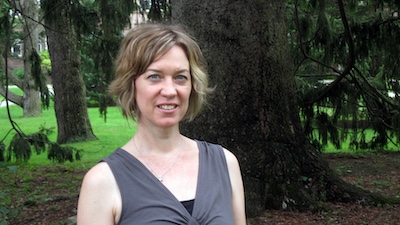
Jane Satterfield
Jane Satterfield has published five poetry books, including The Badass Brontës, a winner of the Diode Editions Poetry Prize, Apocalypse Mix (Autumn House Poetry Prize), Her Familiars, and Assignation at Vanishing Point (Elixir Press Poetry Award). She is the recipient of a National Endowment for the Arts poetry fellowship, the 49th Parallel Award for Poetry from Bellingham Review, the Ledbury Poetry Festival Prize, and more. Daughters of Empire: A Memoir of a Year in Britain and Beyond (Demeter Press, 2009) features selections that received Florida Review’s Editors’ Prize, the Faulkner Society/Pirate’s Alley Essay Award, and the John Guyon Literary Nonfiction Prize. New poetry and prose appear in The Common, DIAGRAM, Ecotone, Interim, Literary Matters, The Missouri Review, Orion, Tupelo Quarterly, and elsewhere. A professor of writing at Loyola University Maryland, Satterfield has served on the faculty of the West Chester Poetry Conference and as the 2019 Salisbury, Maryland Poet-in-Residence. She is married to poet Ned Balbo and lives in Baltimore.
Xenia, or Pizza in Pompeii
“ Though I’ve never visited Pompeii, I’m struck by the way this catastrophe remains a source of cultural fascination and a fable of human folly. Archeological excavations continue to yield intriguing finds that build a bridge between the contemporary and classical worlds. Such is the case of the story of a possible pizza precursor that sailed to the top of my newsfeed this summer, a story that seemed especially poignant in that season of wildfires and boreal ash. The unearthed fresco—a colorful wall in what may have been the house of a baker—speaks to the tradition of hospitality in ancient times. I wondered about the forces—social, economic, and otherwise—that shape our response to warning signs of disaster. I’ve borrowed the description of the cloud that emerges over Vesuvius from Pliny the Younger’s letters, which offer a detailed account of the stages of volcanic eruption. ”
